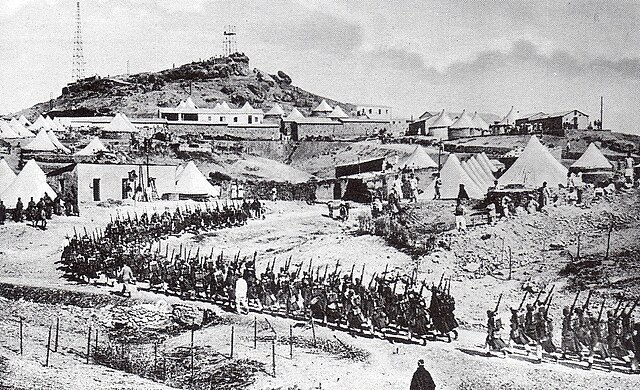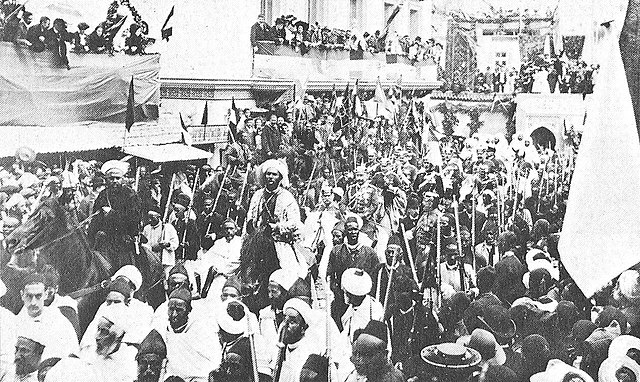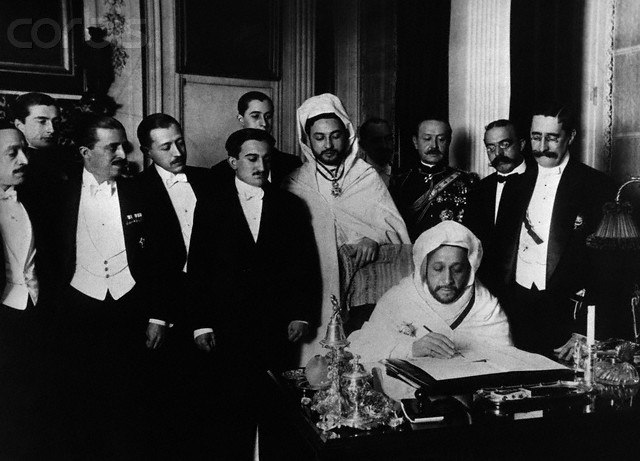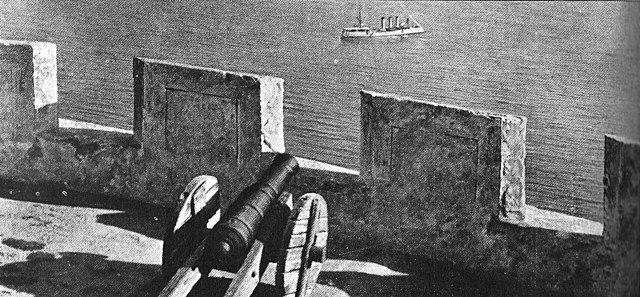The First and Second Moroccan Crises: Paving the Way to World War I

By: Mehdi El Merini / Arab America Contributing Writer
In the early 20th century, the tensions between European powers over influence in Africa and other parts of the world contributed significantly to the outbreak of World War I. Among the most notable incidents were the First and Second Moroccan Crises, which not only showcased the growing rivalry between Germany and France but also underscored the fragility of international diplomacy at the time. These crises, occurring in 1905 and 1911 respectively, were instrumental in reshaping alliances and escalating tensions that ultimately led to the Great War.
The First Moroccan Crisis (1905-1906): Challenging French Ambitions
The First Moroccan Crisis began in 1905 when Germany sought to challenge French influence in Morocco, a strategically located North African country. France, under its imperialist ambitions, had been increasing its control over Morocco, with plans to establish a protectorate. This move was part of France’s broader colonial strategy in Africa, where it sought to expand its empire.

Germany, under Kaiser Wilhelm II, was keen to assert itself as a global power and disrupt the Franco-British Entente Cordiale of 1904, an agreement that had settled colonial disputes between the two nations. In March 1905, Kaiser Wilhelm visited the Moroccan city of Tangier, where he delivered a provocative speech supporting Moroccan independence and criticizing French ambitions. This act was a direct challenge to France and aimed to test the strength of the Entente Cordiale.
The crisis escalated as France, backed by Britain, resisted Germany’s interference. Diplomatic tensions reached a peak, and a conference was convened in Algeciras, Spain, in 1906 to resolve the dispute. At the Algeciras Conference, Germany found itself diplomatically isolated, as most of the participating powers, including Britain, Russia, and Italy, sided with France. The conference ultimately affirmed French and Spanish policing rights in Morocco while maintaining nominal Moroccan independence. For Germany, this was a significant diplomatic defeat, which further fueled its resentment towards France and Britain.

The Second Moroccan Crisis (1911): The Agadir Incident
The Second Moroccan Crisis, also known as the Agadir Crisis, occurred in 1911 and further exacerbated tensions between the European powers. By this time, France had solidified its influence in Morocco, and in 1911, it deployed troops to the Moroccan city of Fez to suppress a local uprising against the sultan. Germany viewed this move as a pretext for establishing a French protectorate, which it believed violated the agreements reached at the Algeciras Conference.
In response, Germany sent the gunboat SMS Panther to the port of Agadir, ostensibly to protect German economic interests. This aggressive show of force alarmed Britain and France, as it was seen as a direct threat to their interests. Britain, in particular, feared that Germany might establish a naval base in Agadir, which could threaten British sea routes.
The crisis brought Europe to the brink of war, but it was ultimately resolved through diplomatic negotiations. In the resulting agreement, Germany recognized France’s protectorate over Morocco in exchange for territorial concessions in the French Congo. While the immediate crisis was averted, the Agadir incident deepened the mistrust between Germany and the Franco-British alliance. It also highlighted the aggressive nature of German foreign policy, which became known as Weltpolitik, and reinforced the sense that Germany was a disruptive force in international relations.

The Impact on International Relations
The Moroccan Crises had profound implications for European diplomacy and the balance of power. First, they strengthened the Entente Cordiale between France and Britain. Britain’s support for France during both crises demonstrated the growing solidarity between the two nations, which would later evolve into a formal military alliance with the inclusion of Russia in the Triple Entente.
Second, the crises exposed Germany’s diplomatic isolation. By antagonizing France and Britain, Germany inadvertently pushed these powers closer together, while also alienating other nations such as Russia and Italy. This isolation would later prove to be a significant disadvantage during World War I.
Third, the Moroccan Crises contributed to the militarization of European diplomacy. The use of gunboat diplomacy during the Agadir incident exemplified the growing reliance on military posturing to achieve political aims. This approach heightened the sense of insecurity among European powers and led to an arms race that further destabilized the continent.

The Road to War
The Moroccan Crises were not isolated events but part of a broader pattern of imperial rivalries and diplomatic tensions that characterized the pre-war period. Alongside other incidents, such as the Bosnian Crisis of 1908 and the Balkan Wars, the Moroccan Crises contributed to a climate of suspicion and hostility that made war increasingly likely.
By 1914, the alliances and enmities solidified during the Moroccan Crises played a key role in the outbreak of World War I. The Franco-British alliance, bolstered by their cooperation during the crises, stood firm against Germany and its allies. Meanwhile, Germany’s frustration with its diplomatic defeats and its desire to assert itself as a global power fueled its aggressive stance in the lead-up to the war.
The First and Second Moroccan Crises were pivotal moments in the lead-up to World War I. They highlighted the fragility of international diplomacy and the dangerous interplay of imperial ambitions and nationalist rivalries. While the immediate disputes over Morocco were resolved through diplomacy, the underlying tensions they revealed remained unresolved, contributing to the catastrophic conflict that would engulf Europe and the world just a few years later. The lessons of these crises serve as a reminder of the importance of dialogue and cooperation in preventing the escalation of international conflicts
Check out our Blog here!








